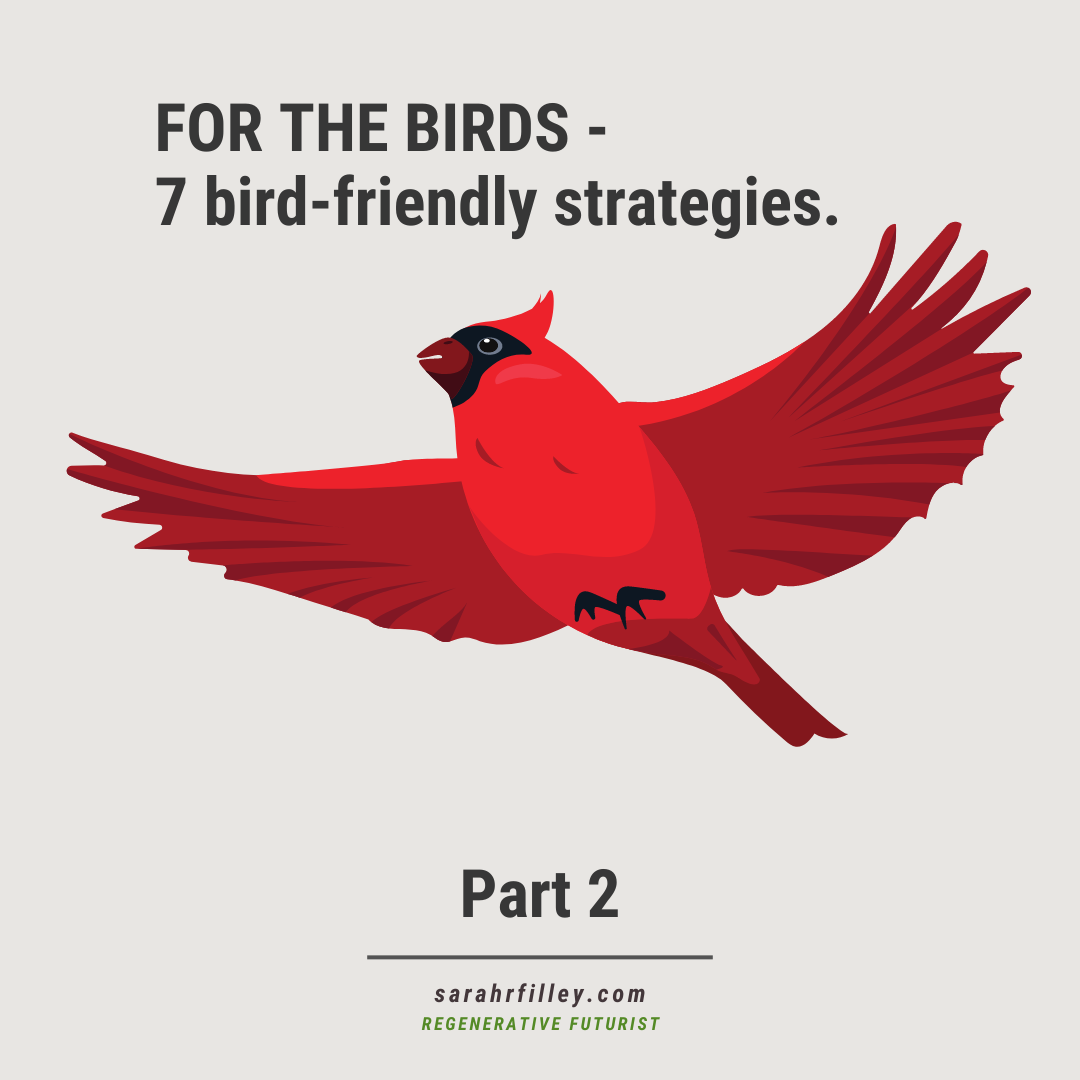AuthorHi, I lift up resources and insights for dreaming into a regenerative future. Here I share inclusive, equitable, and strategic solutions for climate action, urban development, and climate action plans. Archives
June 2024
Categories |
Back to Blog
For the birds: Part 21/24/2024 PART 2: For the birds - 7 ways to help our feathered friends.
The vision for a regenerative future includes increasing biodiversity. We can take climate action towards a regenerative future within various spheres of influence; individual, neighborhood, municipalities, and at the State and Federal levels. These examples are more individual but could have a ripple effect if applied thoughtfully to larger projects. 60-90% of our bird and insect populations have declined since 1970. We can see and hear this absence daily, it is the sound of silence. Here are 7 ways to help our feathered friends from The Cornell Lab of Ornithology. Missed Part 1? Check it out here. 5. Keep Cats Indoors - Each year, outdoor cats kill about 2.4 billion birds in the U.S. and Canada—many of which are young birds that are still in, or just out of, the nest. It’s the top human-caused reason for the loss of birds, after habitat destruction. Save birds and keep cats healthy by keeping cats indoors. This may translate into a pet policy for buildings or result in pet friendly courtyard designs for indoor cats. Or, it may be a personal choice. 6. Drink Shade-Grown Coffee - Three-quarters of the world’s coffee farms destroy forest habitat to grow coffee in the sun—forests that birds and other wildlife need for food and shelter. Shade-grown coffee preserves a forest canopy for migratory birds to survive the winter, but consumers must create a bigger demand for it. Shade-grown helps more than 40 species of North American migratory songbirds that winter in coffee plantations. This was new information for me! Consider making the switch at home, office, and construction sites. 7. Watch Birds — Share What You See - Monitoring birds is essential to help protect them, but tracking the world’s 10,000 bird species is an immense challenge. Scientists need people to report what they see in backyards and wild places around the world to have enough data to show where and when birds are declining. Join Cornell Lab’s eBird or Project FeederWatch to record your bird observations. You’ll provide valuable information to show where birds are thriving and where they need our help. There are so many benefits to learning more about our feathered friends in our area. Reach out or sign up for our newsletter for more resources and insights for dreaming into a regenerative future.
0 Comments
Read More
Leave a Reply. |
 RSS Feed
RSS Feed
